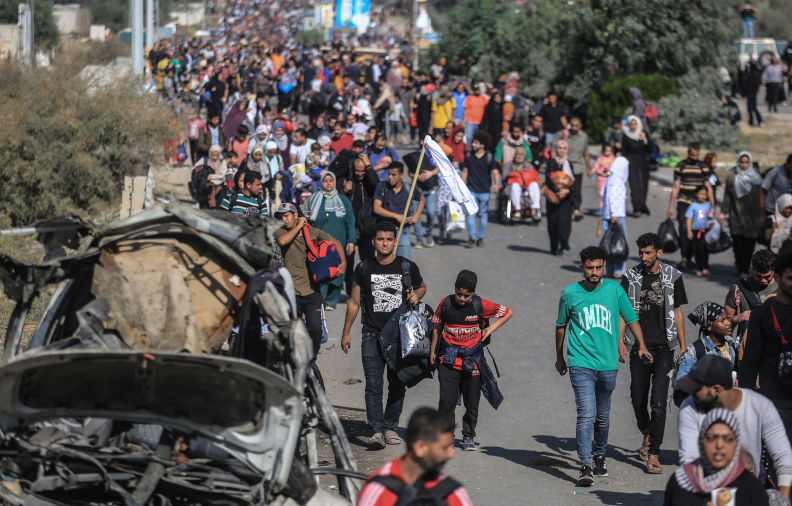Dutton, Gaza and why we need an emergency protection framework
August 23, 2024
Peter Dutton’s politicised dog-whistling about visas for people fleeing the humanitarian catastrophe in Gaza ignores the devastation and extreme risk for innocent civilians trapped in a violent conflict.
In a crisis, moving away from danger is a natural and rational human response. While some people have the financial resources, immigration documentation and networks to get out quickly, many others may be unable to move, or ‘trapped’ by their circumstances. In such cases, people may have acute protection needs that cannot be addressed unless they can reach a place of safety.
Recent conflicts in Afghanistan, Ukraine, Sudan and Gaza have seen large numbers of people displaced and unable to leave dangerous situations. In each case, Australia’s humanitarian response has been very different. For some groups, visas have been relatively easy to acquire; for others, it has been almost impossible. Varying visa entitlements also mean that some people have work rights, health entitlements and access to a wide range of services, while others are barely surviving. Concerns have been repeatedly expressed by the refugee sector, affected communities, experts and Parliamentary inquiries about these divergent and often inadequate approaches which can leave people living in uncertain and insecure conditions.
Australia needs a clear, equitable framework for humanitarian emergencies that would enable the government to provide a streamlined, predictable and effective response to assist people facing a real risk of persecution, extreme danger or other serious harm to find safety in Australia. It should be informed by Australia’s practices over time, as well as comparative practices internationally. It should also not be dependent on a person’s race, religion, or ethnic background – a lesson Australia learned long ago in dismantling the White Australia policy.
A humanitarian emergency framework would provide a robust foundation to enable agile responses that could be quickly tailored to specific conditions. It would include measures for physical evacuations as well as and legal mechanisms (visas) to facilitate people’s safe and swift departure. It would set out clear lines of authority; processes for consultation across different levels of government and with relevant stakeholders; reception facilities for evacuees; and appropriate support for new arrivals with pathways to durable solutions.
Without a visa, people generally cannot take part in an organized evacuation or leave a country on a commercial flight to Australia. This means that having a visa – or not – may be a matter of life and death. The Australian government should ensure that people caught up in a humanitarian emergency are issued an emergency visa to travel to Australia, and that their compatriots already in Australia are issued with an emergency visa or visa extension, where necessary, to allow them to remain lawfully while it is not safe, possible or otherwise desirable for them to return home.
In past humanitarian emergencies, Australia has utilised a wide range of visas, including visitor visas (which were never designed for this purpose). This has resulted in diverse outcomes for those affected, as well as significant distress within diaspora communities in Australia concerned for the safety and welfare of family and friends still abroad. While this has provided the government with flexibility, it has also created ad hoc and inconsistent approaches, and left people in limbo without legal certainty or access to employment, social services and other supports. It has also added to challenges and inefficiencies within the visa processing system, and some double handling.
The Canadian government is currently developing its own Crisis Response Framework to support ‘more proactive and predictable responses to crises and other pressures, based on consistently applied criteria including equity considerations’, and has noted that ‘a framework is needed in order to help promote greater consistency, equity, and efficiency across future responses’. The creation of a more predictable response framework for humanitarian emergencies would assist the Australian government to better plan for crises, anticipate resource needs, and support people in highly precarious circumstances.
Australia has an opportunity to envision a bold, dynamic, equitable and forward-looking framework to protect people in humanitarian emergencies. Doing so would signal Australia’s clear commitment to international solidarity and responsibility-sharing at a time of extreme need. It would be a far more productive response than Dutton’s cheap political attacks.

